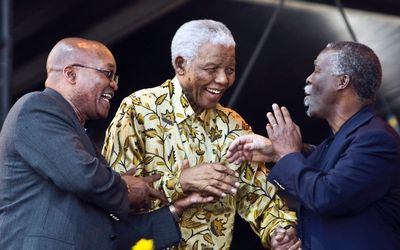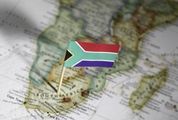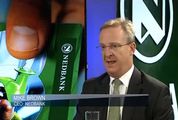ON JULY 9 2000, hundreds of delegates walked out of the 13th International AIDS conference in Durban in protest as then president Thabo Mbeki gave a speech confirming his controversial opinions on the disease.
Five days later Nelson Mandela closed the gathering.
The icon dissociated himself from Mr Mbeki’s denialism, calling AIDS "a tragedy of unprecedented proportions" that was wiping out development gains and sabotaging Africa’s future.
He spoke eloquently of the urgent need to prevent more people from becoming infected.
"He said everything we had wanted Mbeki to say. It was amazing. It had everyone in tears," recalls Prof Salim Abdool-Salim, who chaired the conference’s scientific committee, and today heads the Centre for the AIDS Programme of Research in SA at the University of KwaZulu-Natal and the Medical Research Council.
Mandela was a latecomer to HIV/AIDS. By his own admission the disease was not among his priorities during his five-year term as president. While his attention from 1994-99 focused on nation building, the number of people infected with HIV increased from 530,000 to 3-million, according to the Actuarial Society of SA.
But Mandela was not alone in failing to identify the threat.
"AIDS got lost," says Dr Saadiq Kariem, a former member of the African National Congress’s (ANC) health committee, and now the Western Cape health department’s chief director for general specialist services. "We were concentrating on getting the health system right. People didn’t realise how serious it was."
Even if he had spoken out more, it is questionable how much effect Mandela could have had on the epidemic, says HIV-positive Constitutional Court judge Edwin Cameron. "I’m not sure how much moral blame one must impute to him. I don’t think even a focused, eloquent leader would have made much difference. We were always going to have a massive epidemic," he says.
Even so, the Mandela administration’s approach went beyond neglect. In 1997 the then cabinet threw its support behind an unproven AIDS "cure" called virodene that turned out to be a toxic industrial solvent subjected to not even the most rudimentary scientific tests. The following year the cabinet refused to provide HIV-positive pregnant women with zidovudine (AZT), one of the first drugs approved by regulators to reduce the risk of mother-to-child transmission of the virus.
Mr Mbeki’s biographer, Mark Gevisser, says Mandela took up the AIDS campaigning after leaving office out of concern for the damage to South Africa’s reputation from Mr Mbeki’s stance, unhappiness with the inability of ANC leaders to challenge Mr Mbeki, and distress at the rising death toll.
By 2011, 5.6-million South Africans had HIV, according to the United Nations (UN) joint agency on HIV/AIDS, UNAIDS, and the country boasts the world’s biggest public sector treatment programme, with more than 2-million patients on antiretroviral therapy. Yet although drugs to slow the progression of HIV were widely available by the late 1990s, the South African government held back from providing them through public hospitals and clinics for many years, and it was only under President Jacob Zuma’s administration that the programme gained true momentum.
As Mandela began campaigning, Mr Mbeki’s attention was caught by a small group of scientists who were questioning the by-then accepted wisdom that AIDS is caused by HIV. In October 2000, Mr Mbeki told the ANC parliamentary caucus that the CIA was trying to undermine him because his questions about HIV posed a threat to US pharmaceutical companies’ profits on AIDS drugs.
Silence from both Mandela and Mr Mbeki around the death in October 2000 of Parks Mankahlana, spokesman to both men, of what was widely believed to be an HIV-related disease, symbolised the secrecy around the pandemic at that time.
In 1997, Mandela’s administration had passed laws that would allow the import of cheaper generic versions of AIDS drugs. This prompted a legal challenge from the pharmaceutical industry that went to court in 2001.
The case drew international attention as it pitted the developing world against big business, and saw the government enter an uncomfortable alliance with AIDS activists over the right to affordable treatment. The industry eventually dropped the case. But Mr Mbeki’s contrarian views continued to hold sway.
Mandela refrained from publicly criticising Mr Mbeki until December 2001, when he accused his successor of dereliction of duty for not leading the fight against AIDS. "You cannot underestimate the significance of his intervention. Without (it) we would never have got treatment when we did," says Justice Cameron.
In March 2002, Mandela challenged the ANC leadership in a dramatic national executive committee meeting to stop arguing over the cause of AIDS and focus their energy on dealing with the epidemic. So powerful was Mr Mbeki that Mandela was met by a wall of hostility for breaking ranks, particularly by AIDS dissident Peter Mokaba. Shaken but undeterred, he intensified his campaigning. The next month, the cabinet said it would start providing anti-retroviral treatment to people who had been raped.
Ever the master of political theatre, in July 2002 Mr Mandela, wearing a purple "HIV positive" T-shirt, visited Zackie Achmat, head of the activist group the Treatment Action Campaign, in his home and urged him to start taking AIDS drugs. Mr Achmat, president Mbeki’s bête noir, had refused to begin taking the lifesaving pills until the government began providing the drugs to all who needed them.
Mandela also generated awareness and raised money to fight AIDS through his Children’s Fund and the later high-profile and celebrity-rich 46664 campaign.
In contrast to Mr Mbeki, who had withdrawn from the debate in late 2000, Mandela became a vigorous AIDS spokesman. In 2005, when his son Makgatho died from an HIV-related illness, Mandela was open about it.
Perhaps proof of Mandela’s change of heart lies in his books. While his 1994 autobiography, Long Walk to Freedom, contains no references to HIV/AIDS, a 2009 publication, Mandela: The Authorised Portrait, carries 11 indexed references to the disease — and only 10 references to Mr Mbeki.

THREE LEADERS: Nelson Mandela celebrates his 90th birthday with then president Thabo Mbeki and African National Congress leader Jacob Zuma at Loftus Stadium in August 2008. Picture: GALLO IMAGES
ON JULY 9 2000, hundreds of delegates walked out of the 13th International AIDS conference in Durban in protest as then president Thabo Mbeki gave a speech confirming his controversial opinions on the disease.
Five days later Nelson Mandela closed the gathering.
The icon dissociated himself from Mr Mbeki’s denialism, calling AIDS "a tragedy of unprecedented proportions" that was wiping out development gains and sabotaging Africa’s future.
He spoke eloquently of the urgent need to prevent more people from becoming infected.
"He said everything we had wanted Mbeki to say. It was amazing. It had everyone in tears," recalls Prof Salim Abdool-Salim, who chaired the conference’s scientific committee, and today heads the Centre for the AIDS Programme of Research in SA at the University of KwaZulu-Natal and the Medical Research Council.
Mandela was a latecomer to HIV/AIDS. By his own admission the disease was not among his priorities during his five-year term as president. While his attention from 1994-99 focused on nation building, the number of people infected with HIV increased from 530,000 to 3-million, according to the Actuarial Society of SA.
But Mandela was not alone in failing to identify the threat.
"AIDS got lost," says Dr Saadiq Kariem, a former member of the African National Congress’s (ANC) health committee, and now the Western Cape health department’s chief director for general specialist services. "We were concentrating on getting the health system right. People didn’t realise how serious it was."
Even if he had spoken out more, it is questionable how much effect Mandela could have had on the epidemic, says HIV-positive Constitutional Court judge Edwin Cameron. "I’m not sure how much moral blame one must impute to him. I don’t think even a focused, eloquent leader would have made much difference. We were always going to have a massive epidemic," he says.
Even so, the Mandela administration’s approach went beyond neglect. In 1997 the then cabinet threw its support behind an unproven AIDS "cure" called virodene that turned out to be a toxic industrial solvent subjected to not even the most rudimentary scientific tests. The following year the cabinet refused to provide HIV-positive pregnant women with zidovudine (AZT), one of the first drugs approved by regulators to reduce the risk of mother-to-child transmission of the virus.
Mr Mbeki’s biographer, Mark Gevisser, says Mandela took up the AIDS campaigning after leaving office out of concern for the damage to South Africa’s reputation from Mr Mbeki’s stance, unhappiness with the inability of ANC leaders to challenge Mr Mbeki, and distress at the rising death toll.
By 2011, 5.6-million South Africans had HIV, according to the United Nations (UN) joint agency on HIV/AIDS, UNAIDS, and the country boasts the world’s biggest public sector treatment programme, with more than 2-million patients on antiretroviral therapy. Yet although drugs to slow the progression of HIV were widely available by the late 1990s, the South African government held back from providing them through public hospitals and clinics for many years, and it was only under President Jacob Zuma’s administration that the programme gained true momentum.
As Mandela began campaigning, Mr Mbeki’s attention was caught by a small group of scientists who were questioning the by-then accepted wisdom that AIDS is caused by HIV. In October 2000, Mr Mbeki told the ANC parliamentary caucus that the CIA was trying to undermine him because his questions about HIV posed a threat to US pharmaceutical companies’ profits on AIDS drugs.
Silence from both Mandela and Mr Mbeki around the death in October 2000 of Parks Mankahlana, spokesman to both men, of what was widely believed to be an HIV-related disease, symbolised the secrecy around the pandemic at that time.
In 1997, Mandela’s administration had passed laws that would allow the import of cheaper generic versions of AIDS drugs. This prompted a legal challenge from the pharmaceutical industry that went to court in 2001.
The case drew international attention as it pitted the developing world against big business, and saw the government enter an uncomfortable alliance with AIDS activists over the right to affordable treatment. The industry eventually dropped the case. But Mr Mbeki’s contrarian views continued to hold sway.
Mandela refrained from publicly criticising Mr Mbeki until December 2001, when he accused his successor of dereliction of duty for not leading the fight against AIDS. "You cannot underestimate the significance of his intervention. Without (it) we would never have got treatment when we did," says Justice Cameron.
In March 2002, Mandela challenged the ANC leadership in a dramatic national executive committee meeting to stop arguing over the cause of AIDS and focus their energy on dealing with the epidemic. So powerful was Mr Mbeki that Mandela was met by a wall of hostility for breaking ranks, particularly by AIDS dissident Peter Mokaba. Shaken but undeterred, he intensified his campaigning. The next month, the cabinet said it would start providing anti-retroviral treatment to people who had been raped.
Ever the master of political theatre, in July 2002 Mr Mandela, wearing a purple "HIV positive" T-shirt, visited Zackie Achmat, head of the activist group the Treatment Action Campaign, in his home and urged him to start taking AIDS drugs. Mr Achmat, president Mbeki’s bête noir, had refused to begin taking the lifesaving pills until the government began providing the drugs to all who needed them.
Mandela also generated awareness and raised money to fight AIDS through his Children’s Fund and the later high-profile and celebrity-rich 46664 campaign.
In contrast to Mr Mbeki, who had withdrawn from the debate in late 2000, Mandela became a vigorous AIDS spokesman. In 2005, when his son Makgatho died from an HIV-related illness, Mandela was open about it.
Perhaps proof of Mandela’s change of heart lies in his books. While his 1994 autobiography, Long Walk to Freedom, contains no references to HIV/AIDS, a 2009 publication, Mandela: The Authorised Portrait, carries 11 indexed references to the disease — and only 10 references to Mr Mbeki.





















